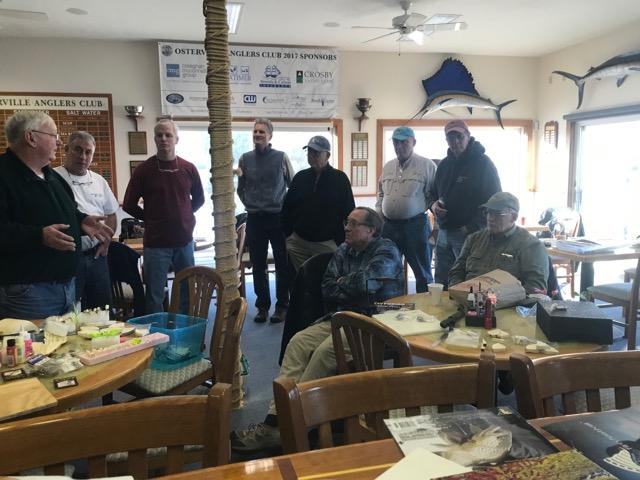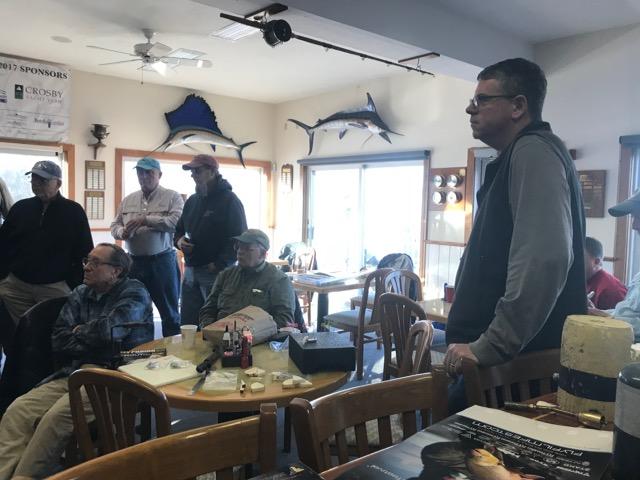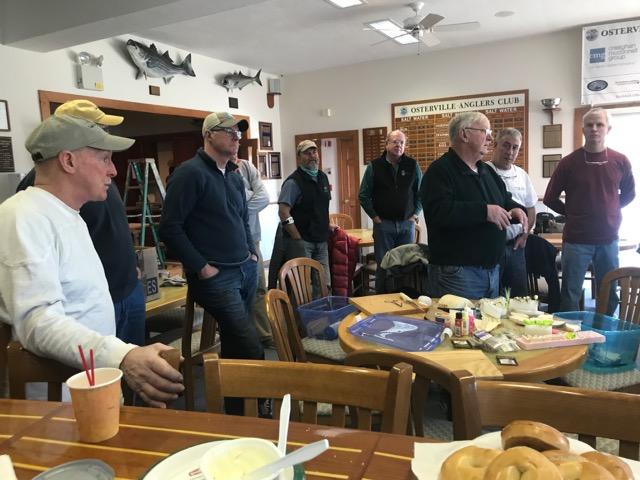|
Thanks to our Platinum sponsors:
Osterville Anglers Club
E-News for February 1, 2018
The Manager’s Corner – William Ferretti
As previously advertised, the Club is hosting two educational events featuring the Garmin presentation on February 7th and Ross Kessler on February 22nd. If you plan to attend, please let the Club know ASAP as each event will be preceded by a light supper. (Please see details below of each event). This past weekend Bob Lewis conducted a fly tying workshop. It was a well attended event and enjoyed by all. A few photos to share. – – – – –
This past weekend I received a call from Bruce Cunningham asking if I saw the article in the Cape Cod Times entitled “Massachusetts mismanages the wild striped bass fishery.” The article appeared in the January 27th edition, page 8a, Ideas & Opinion section. Bruce thought it would make some interesting reading for our members. A reprint of the article is below. Massachusetts mismanages the wild striped bass fishery
By Dean Clark
Posted Jan 27, 2018 at 3:00 AM Updated Jan 27, 2018 at 7:22 AM
According to federal data, the recreational wild striped bass fishery in Massachusetts has been trending downward for 17 years. Maine, New Hampshire, Connecticut and Pennsylvania recognize the economic benefits of managing stripers for their greater value as a recreational species and have banned fishing for them commercially. Recent NOAA data reveals that: a) recreational striped bass fishing in Massachusetts and our commercial scallop fishery are our two most valuable marine industries; b) recreational striped bass fishing is more economically valuable to Massachusetts than all our other commercial fin-fisheries combined; c) the value of the commercial striped bass fishery represents less than one half of one percent of all our commercial fin-fisheries. Conclusion: Recreational striped bass fishing has a much greater impact on our overall economy than most people realize, and that current management’s commercial priorities are misdirected. The key point that is so often overlooked in this discussion is not who kills the fish but rather what goal and purpose is the fishery being managed for. This is not an allocation debate; it is a management policy debate. There is a striped bass management bill (H466) currently under consideration in the Legislature that will establish new management goals requiring that the wild striped bass fishery be managed for its greatest economic value. Doing so would, over time, make wild stripers a recreational-only game species through the gradual attrition of commercial permits. Managing wild striped bass as a game species in Massachusetts, according to NOAA data, could help us restore our once $1 billion annual recreational striper fishing industry and generate up to 4,000 new jobs. This is serious business especially for our coastal economies. We should not be ignoring it or pretending that all is well. This bill, unlike similar bills before it, allows qualifying commercial fishermen to continue harvesting stripers while eliminating those permit holders who are recreational fishermen pretending to be commercial fishermen — “recromercials” — that are taking personal advantage of a broken system. In 2005, the Massachusetts Division of Marine Fisheries wrote in its newsletter that “… the commercial (striped bass) fishery attracts thousands of participants lured by the idea of subsidizing an expensive hobby.” This striper bill protects the legitimate commercial fisherman and winnows out the “recromercials” that are buying commercial permits to support their recreational fishing habits and to avoid having to comply with more restrictive recreational regulations. The Massachusetts Marine Fisheries Advisory Commission (MMFAC) sets the rules and regulations for stripers and other fish stocks within state marine waters. Seven of the nine members of the MMFAC have vested financial interests in commercial fishing. Prior to and under their commercially biased control, many of our fisheries, including wild striped bass, have been degraded primarily due to regulated over-harvesting. In Massachusetts, over 300 years ago, there were hundreds of times more stripers than today and many individual fish were recorded to be in excess of 100 pounds. About 150 years ago, Massachusetts was the epicenter for large striped bass fishing. Many 80-pound-plus fish were documented and, consequently, the Cape and Islands became major tourist attractions creating an entirely new and welcomed economic industry. Even 50 years ago, a 65- or 70-pound bass would get your name in the paper, while today, because of permitted degradation, a 50-pound striper is a headliner. We should not be fooled or become complacent with this new diminished norm that is fueled by misleading declarations of having “a fully recovered fishery.” It’s not true and it’s unacceptable. In fact, according to NOAA data, because of the decline in the recreational striped bass fishery, Massachusetts has lost more than $300 million to $400 million in annual economic activity and hundreds of jobs each year since 2003. Wild striped bass in Massachusetts are regulated to benefit commercial harvesting, not to support the more economically valuable recreational fishery. If wild striped bass and the economically valuable recreational striped bass fishery are to be protected and saved from ongoing, commercially sourced temptations, then management objectives need to be redefined by the Legislature. This bipartisan bill does that by establishing new policy goals for the MMFAC to implement. It creates a policy initiative redirecting regulators to manage this limited, valuable species for its greatest financial value to the public and the commonwealth. Doing so will create a robust fishery, regenerate lost jobs and a return to the billion-dollar recreationally based fishing industry we all once enjoyed and hopefully will regain. Dean Clark of Marstons Mills and Shrewsbury is on the board of directors of Stripers Forever, a national nonprofit conservation group, and co-chairman of the Massachusetts chapter of Stripers Forever.
https://www.capecodtimes.com/opinion/20180127/massachusetts-mismanages-wild-striped-bass-fishery – – – – –
While on the topic of fishing, does your license need renewal or are you in need of a new license? (honestly, I did not even know that salt water fishing required a license) Anyway, follow this link for all license needs and questions (on line renewals/applications, costs, locations.)
https://recreationallicenses.org/c/fishing/sc/general-information/massachusetts.html
UPCOMING EVENTS
SUPER BOWL LII
( 52-where have all the years gone?!) is scheduled for February 4th. Though nothing formal is planned, the Club will be open. Watch all the action on our new,BIG screen TV. Bring chips and finger food and your favorite drink/s.
– – – – –
 Marine Electronics 101 Wednesday February 7, 2018
Dinner @ 6 p.m.
Prepared by Dave Ryan ($10/person)
If you’re thinking about upgrading your electronics or you just want to learn more about using what you have,
this seminar will be one you won’t want to miss.
Bring your questions, bring your problems, bring yourself and bring a friend.
This will be an informal evening of learning about marine electronics products and new technology that can make
your fishing more productive and your navigation safer.
Topics will range from reading sonar, to using radar to finding birds and ‘seeing’ storms coming over the horizon.
Learn how to make your own fishing charts and find out about the different types of the fish finders and charting technology.
The above are just a few of the topics that will be covered.
Regional Training Specialist John Anderson from Garmin will be hosting this event.
Please RSVP by February 2, 2018
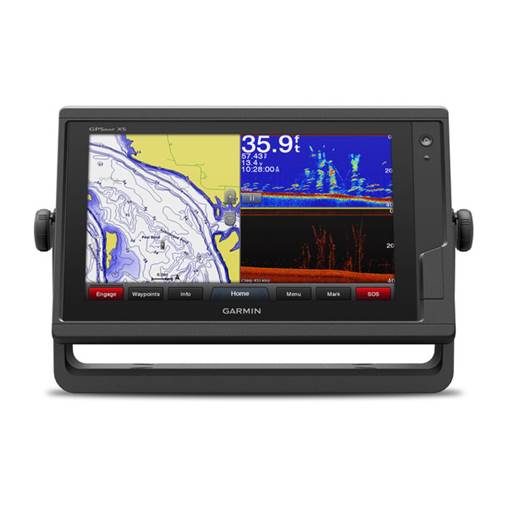 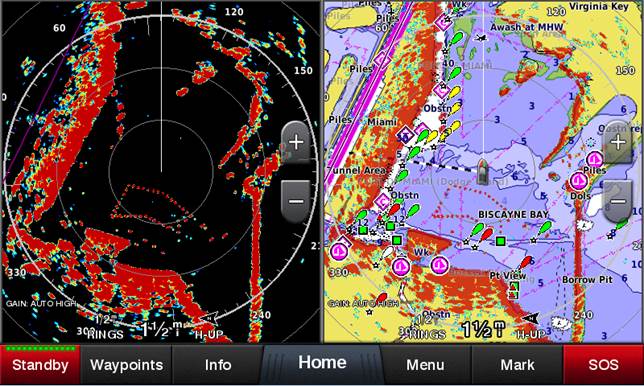 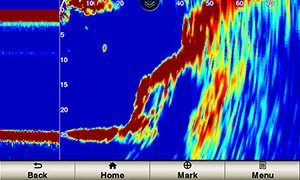 
– – – – – – – – Ross Kessler
February 22, 2018
Dinner @ 6PM
Clam chowder & salad ($10/person)
In 2009 when the state enacted a salt water fishing license the law was met with a lot of skepticism from the angling public. Where would this money go? Was it another money grab from the state? These were some of the questions that were asked. Fortunately, there are groups like the Massachusetts Sportsmen’s Council that went to bat for their constituents. The Sportsmen’s Council went to the State House lobbied for and received a line in the Salt Water Fishing License law dedicating a full third of all money raised to be dedicated to public access. Tonight’s talk will discuss how we choose projects, what has been accomplished so far, and what we are planning for the future.
Ross K. Kessler Please RSVP by February 19, 2018
– – – – – –
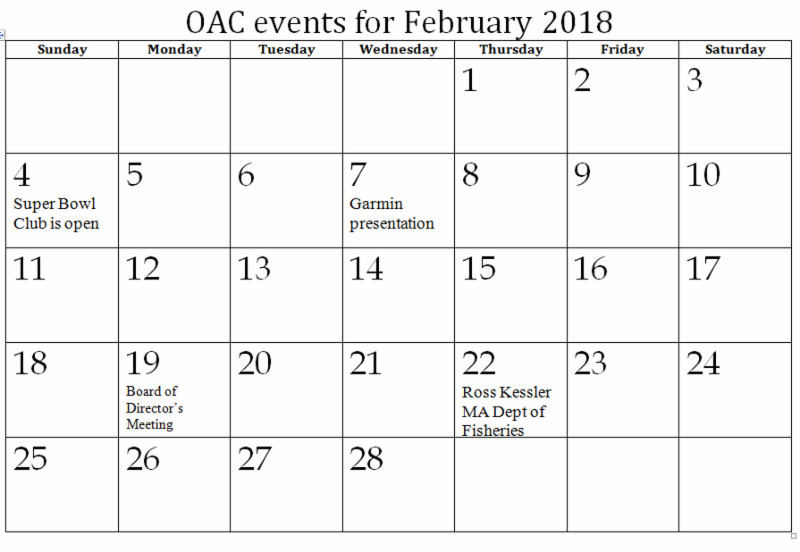 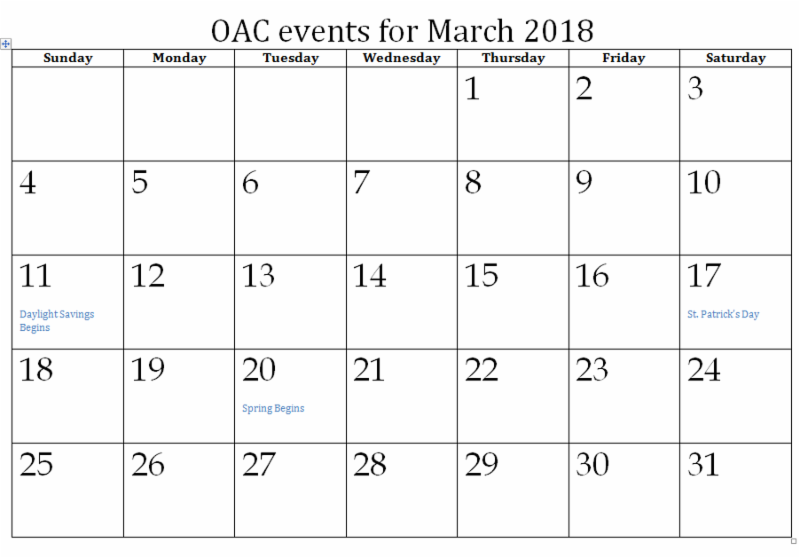 |
|
For more information, please visit www.ostervilleanglersclub.com
Osterville Anglers Club
PO Box 395 Osterville, MA 02655
508-420-4336
Club Office Hours: |
 |
|
Silver Sponsors
Cape Tire Service | Dustbusters | KenMark Office Systems | Pierce Law
|



